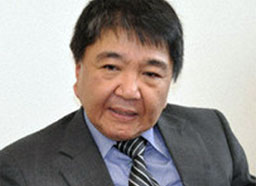KABUL (Pajhwok Afghan News) – The Asian Development Bank (ADB) on Thursday announced it would spend $300 mln on the development of Afghanistan’s energy and transport sectors this year as part of the international community’s aid pledges at Tokyo conference last year. World leaders and representatives of donor agencies at the conference in Japan pledged to give Afghanistan $16 bln in civilian aid over four years, in an attempt to safeguard its future after foreign forces leave in 2014.

- Joji Tokeshi is Country Director of ADB at Afghanistan
ADB’s country partnership strategy, 2009–2013, continues focus on Afghanistan’s energy, transportation and communications, agriculture and natural resources, and governance.
For ADB, Afghanistan continues to face daunting challenges, including endemic poverty and lack of human capacity; insecurity; weak governance and institutionalized corruption; opium exports equal to 22% of GDP; rampant gender inequality; and policy, regulatory, and institutional constraints that have limited effective growth in public and private sectors.
The pledges from biggest donors, the US, Japan, Germany and the UK, came as Afghanistan agreed to new conditions to deal with endemic corruption. The Asian Development Bank announced it would provide $1.2 bln through 2016. A follow-up meeting is to be held in Britain in 2014.
The US, which is by far the largest donor, says it plans to keep its assistance through 2017 near the average amount it has been over the last decade, which would likely be under $2 bln a year.
Japan, the second-largest donor, says it will provide up to $3 bln through 2016. Germany has announced it will keep its contribution to rebuilding and development at its current level of $536 mln a year, at least until 2016.
ADB country director for Afghanistan Joji Tokeshi told reporters in Kabul the $300 mln assistance would be used for constructing roads, extending power supply through transmission lines to southern provinces and bringing into proper use the country’s natural resources.
The roads to be constructed include a 33 km portion of the Lashkargah-Greshk highway in Helmand, a 50 km road in Paktika, a 106 km portion of the Kabul-Jalalabad road, a 182 km road from Yakawlang valley of Bamyan to Dara-i-Sauf in Samangan, another 112 km road from Faizabad to Ishkasham and 75 km road in Salang pass.
Tokeshi said the bank planned establishing a railway track from Mazar-i-Sharif to Andkhwi district in Faryab, hoping it would help connect the landlocked country with international ports.
On energy sector, he said the ADB would help extend electricity supply lines to Logar and southern provinces, besides establishing hydropower sub-stations and micro hydroelectric power units in Bamyan and rehabilitating a natural gas well in Jawzjan. It is estimated that nearly $5 bln of grant assistance and private sector investments will go into the Afghanistan energy sector during 2013 2015.

